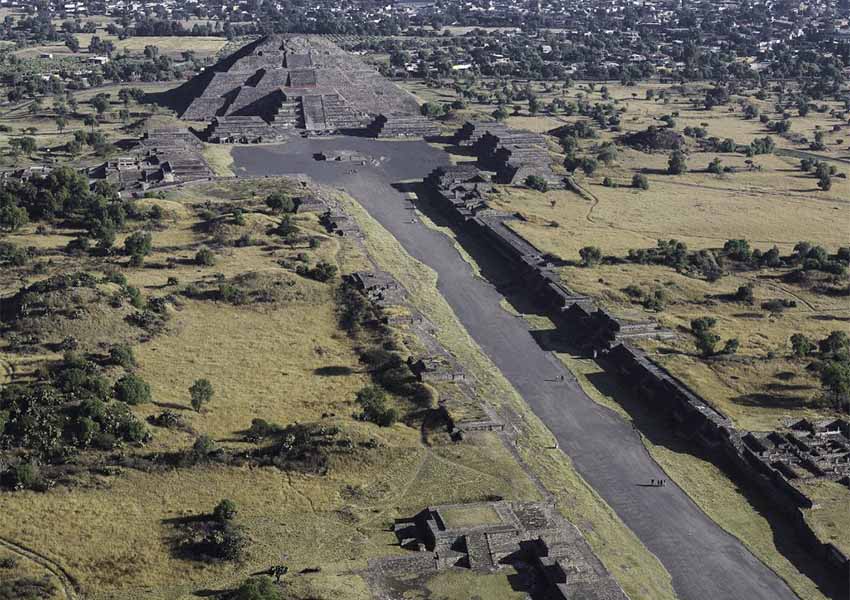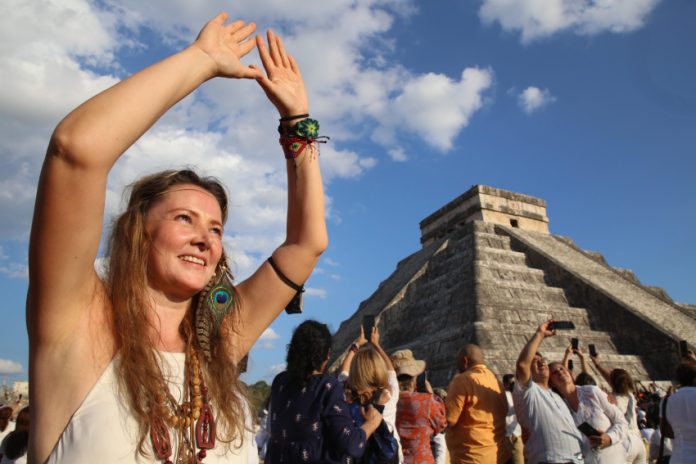The ancient cities of Chichén Itzá and Teotihuacán are set for thousands of tourists today, as crowds gather to celebrate the spring equinox — the official start of the new season.
The National Institute of Anthropology and History (INAH) has launched “Operation Equinox,” to protect and promote the historic sites before one of the busiest days of the year.
Chichén Itzá, in the state of Yucatán, is home to the world-famous Temple of Kukulkan — which appears to come to life during the equinox, as shadows cast by the design of the temple give the effect of a giant plumed snake slithering down the stairs.
Chichén Itzá will be limited to 15,000 visitors in order to protect the ancient city, which dates from around A.D. 800. It was designated a UNESCO World Heritage Site in 1988.
The snake god Kukulkan was one of the chief Mayan deities, and his “arrival” from the center of the temple marked the beginning of the maize planting season.
At Teotihuacán, located in México state, thousands are expected to arrive from nearby Mexico City in search of a mystical energy associated with the site. At its height, Teotihuacán was one of the largest cities of the ancient world, with a population of over 125,000.

Operation Equinox specifies that visitors will not be able to climb the enormous pyramids of the sun and the moon, which dominate Teotihuacán. However, this has been the case already in recent years in order to prevent damage to the ancient monuments.
The equinox occurs when the sun is over the equator, and the day and night are almost exactly equal across the globe.
Visitors to the sites are reminded to remain in the designated areas and to not perform religious rites or ceremonies without prior permission from INAH. The measures will last until Mar. 24.
INAH recommends that historians in search of a quieter experience visit the sites at Izamal, Ek’ Balam, Mayapán, Uxmal or Kabah instead.
With reporting by Infobae and La Jornada
